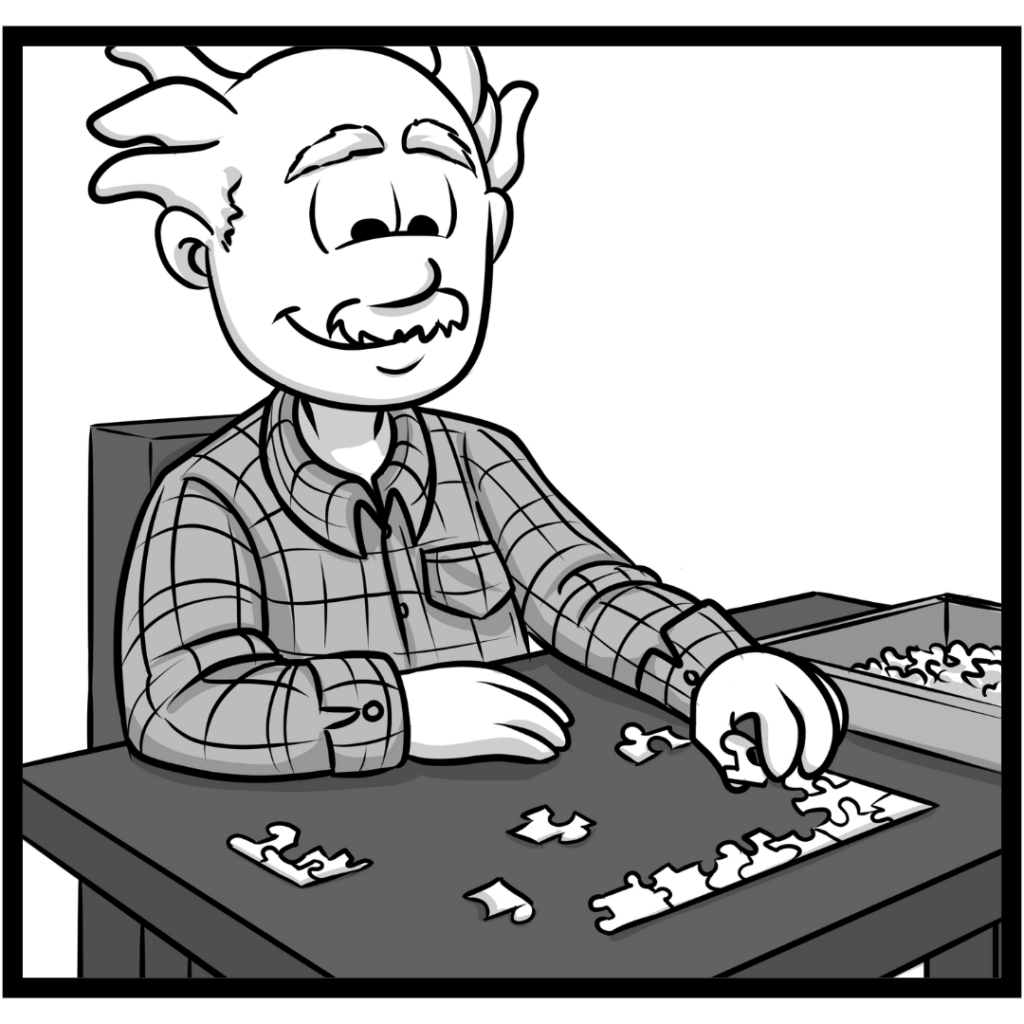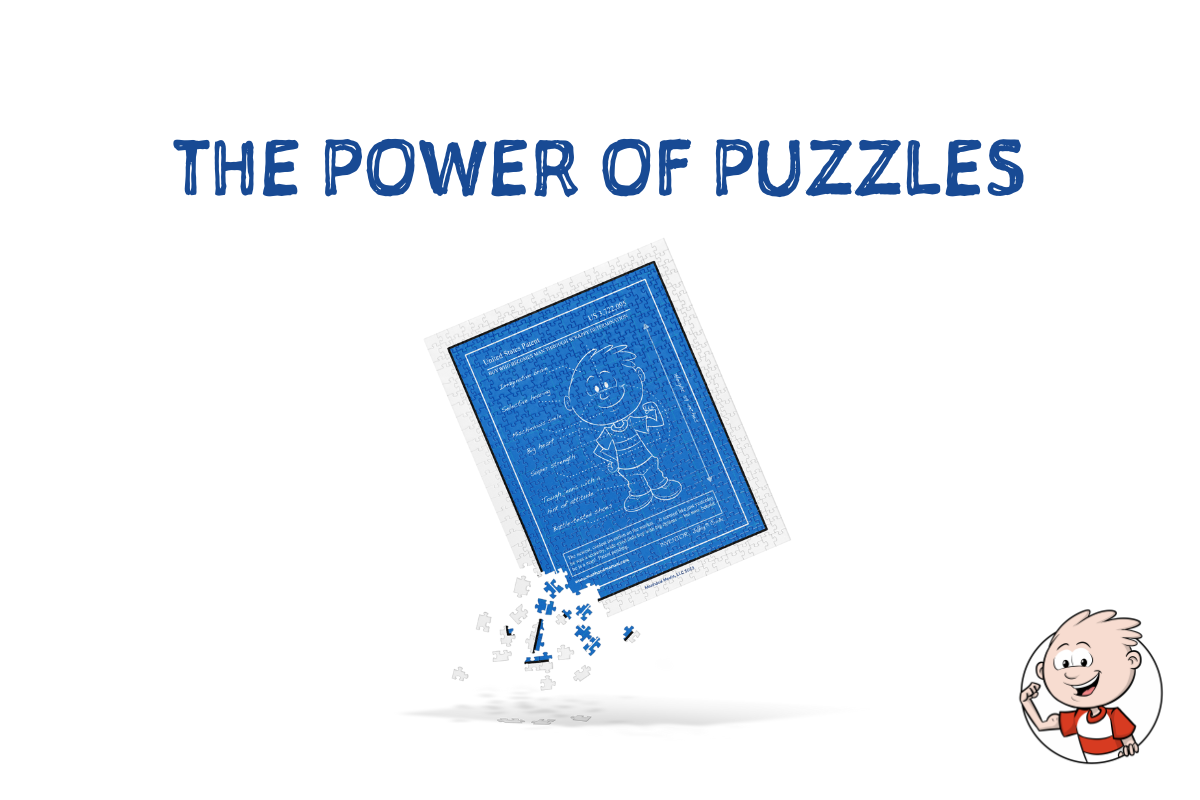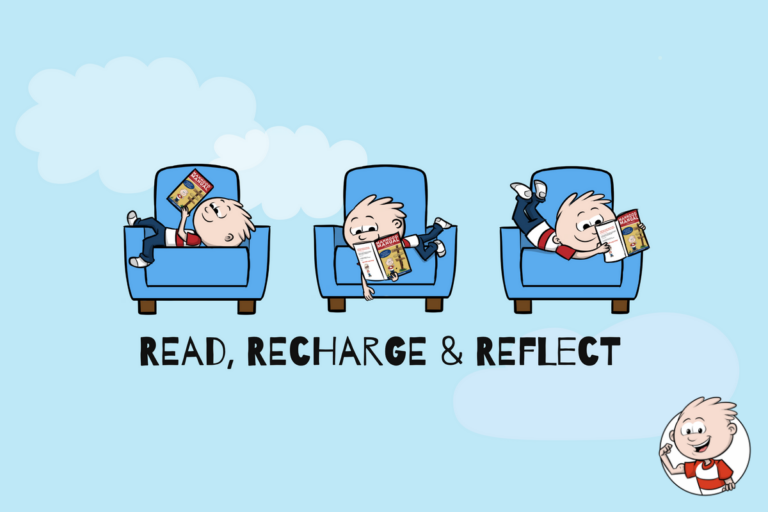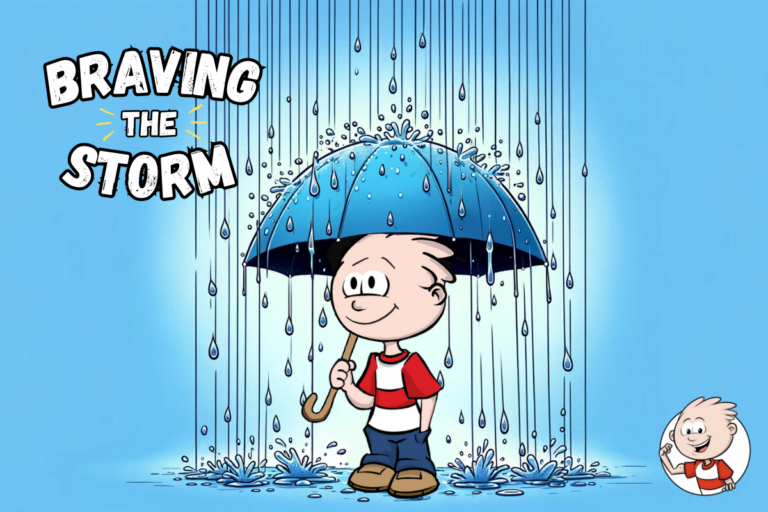The Power of Puzzles
Developing Patience in Boys
Inspired by The Manhood Manual book series, our e-newsletter brings parents and educators a blend of fun stories, challenges, and growth lessons for boys on their path to manhood. Expect a Cool Idea for engaging learning, a Big Problem to ponder about growing up, and a Lesson Learned to help build remarkable boys.
The Cool Idea
For centuries, puzzles have been a great source of entertainment and education, but did you know that they’re also fantastic tools for teaching patience? In a world where we’re often rushing from one thing to the next, slowing down to complete a puzzle can be an enriching experience that builds patience, persistence, and focus.
Welcome to our “The Power of Puzzles Challenge”!
Materials Needed: A jigsaw puzzle (Select a level of complexity suitable for your child’s age. For younger kids, start with a 100-piece puzzle. For older kids, go for 500 pieces or even 1000!)
The Plan:
- Setup: Choose a quiet, comfortable place to start the puzzle. You’ll want a place where you can leave it undisturbed over multiple sessions, as this project will likely take some time.
- Start Together: Begin the puzzle together. This is a great bonding opportunity, and you can model patience and perseverance.
- Strategize: Discuss a plan for completing the puzzle. This may involve sorting pieces by color, finding all the edge pieces, or identifying pieces of a particular part of the picture.
- Progress Tracking: Take photos or keep a journal of your puzzle progress each day. This visual record can make it exciting to see how patience and persistence pay off over time.
- Puzzle Time: Establish regular puzzle time each day. Setting aside a specific time reinforces that patience is a practice, and that completing a large task often requires consistent effort over time.
- Patience and Perseverance: There will be times of frustration when pieces don’t fit or parts of the puzzle seem impossible. Use these moments to talk about patience, reminding your child that not everything comes easily and that it’s okay to take a break and come back to a task with fresh eyes.
- Celebrate: Once the puzzle is complete, celebrate this accomplishment together! Take a moment to reflect on the process and the patience it took to reach the end.
The Power of Puzzles Challenge is not just about completing a picture; it’s about the journey of getting there. Through this project, boys will learn that patience is often about sticking with a task, even when it’s difficult or tedious. It’s about learning to enjoy the process, not just racing towards the finish line. And most importantly, it teaches them that some things can’t be rushed, and the satisfaction of completing a challenging task is well worth the wait!
Happy puzzling!
The Big Problem
In The Manhood Manual – A Comic Adventure, Jeffrey’s Uncle Bob loved puzzles. Although Jeffrey thought puzzles were boring, his uncle patiently finished them. In a fast-paced world where instant gratification is often the norm, patience stands out as an increasingly critical skill. Patience helps boys develop emotional resilience, learn better problem-solving skills, and handle frustration more effectively. It encourages them to realize that worthwhile things take time and effort, and that the journey towards a goal can be as rewarding as achieving it.

If you’re seeking advice on teaching patience to boys, look no further. Our recommended reading list is a treasure trove of wisdom and practical strategies. The modern world is often characterized by hustle and speed, and it’s within this environment that “Boys Should Be Boys” by Meg Meeker makes its mark. Meeker implores us to let boys grow and learn at their own pace, advocating for patience as a key aspect of their development. This involves teaching boys to absorb the world around them, to face challenges head-on, and to develop the skills necessary for personal growth, building solid relationships, and future success.
Another standout book is “Parenting with Love and Logic” by Charles Fay and Foster Cline. This book takes a slightly different tack, asserting that boys should be allowed, even encouraged, to make mistakes. The idea is that boys must learn patience by understanding that not all outcomes are immediate and that real achievements often take time. Moreover, Fay and Cline offer numerous strategies to help parents incorporate lessons about patience into daily routines.
“Whole-Brain Child” by Daniel J. Siegel and Tina Payne Bryson, on the other hand, delves into the intricacies of the mind. The authors posit that boys can cultivate patience more effectively by understanding how their minds work. This understanding can help boys manage challenging tasks, cope with strong emotions, and navigate social situations – all of which require the exercise of patience.
These books, each unique in perspective and based on extensive research and experience, are invaluable resources for parents and educators alike.
References:
The Lesson Learned
Looking for some more ideas? The Manhood Patent puzzle is a cool puzzle to try if you’re looking for the ultimate puzzle challenge. Also check out Peacemakers, an innovative card game designed to help children explore their feelings, build emotional intelligence, and learn important concepts like patience and mindfulness. Each card in the deck contains a powerful message or a thought-provoking question designed to spark conversations and foster emotional growth. The game is versatile and can be used in a variety of settings – at home, in the classroom, or even in therapeutic situations. It encourages kids to express themselves, listen to others, and build empathy and understanding – all essential components of patience and interpersonal skills.
Invest a minute and inspire a lifetime . . .








